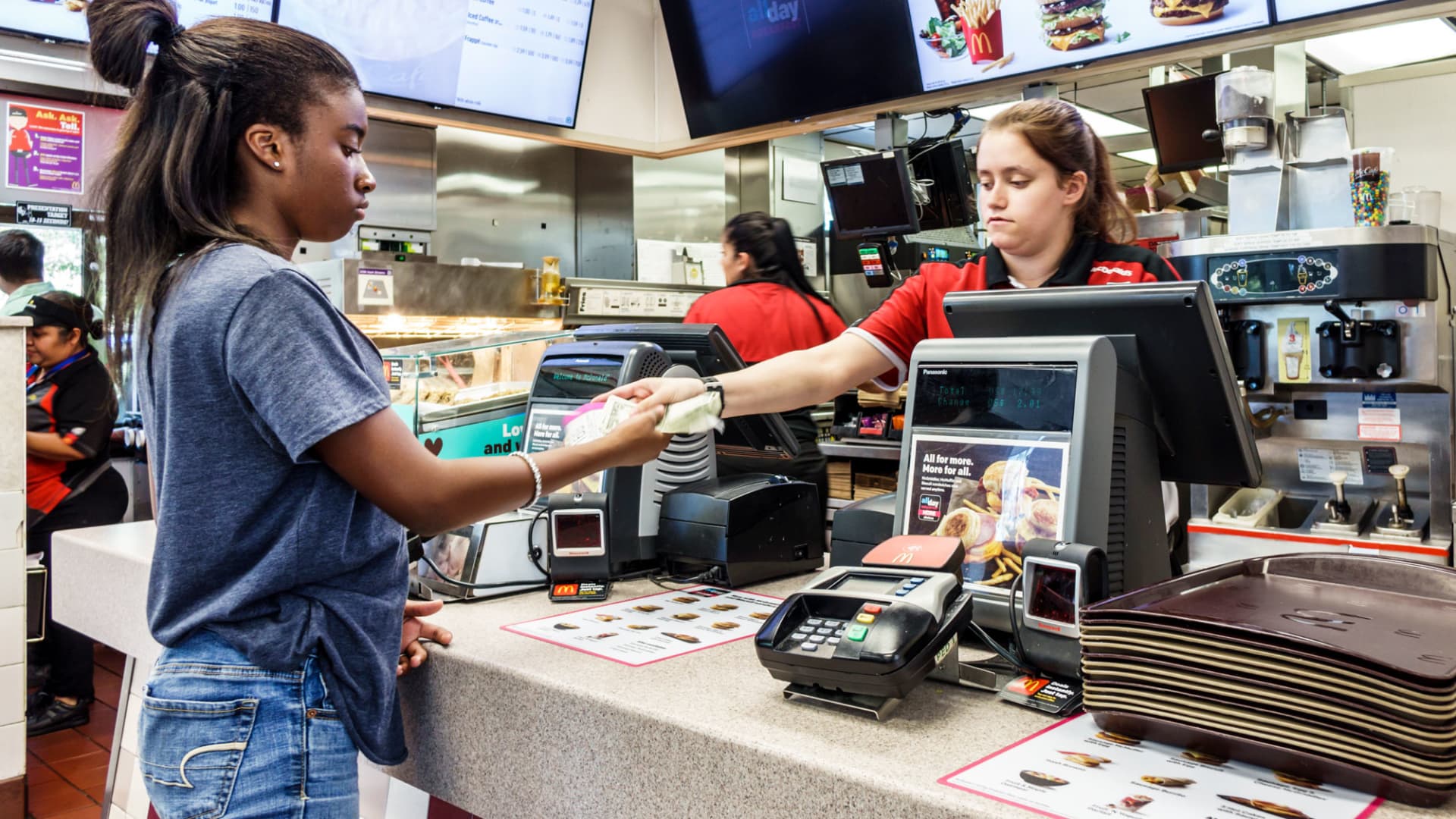Some of America’s best-known corporations are saying their consumers are being pinched by inflation as prices continue rising.
Inflation has dominated corporate America’s discourse over the past three years following the pandemic-induced easing of monetary policy and trillions of dollars in Covid relief. Though the pace of price growth has cooled since the Federal Reserve began raising interest rates in early 2022, consumers are still feeling the squeeze — and often tightening purse strings — as costs continue climbing.
“It is clear that broad-based consumer pressures persist around the world,” McDonald’s CEO Chris Kempczinski said on the fast-food chain’s earnings call early Tuesday. “Consumers continue to be even more discriminating with every dollar that they spend as they faced elevated prices in their day-to-day spending.”
Sticky inflation has created a dark cloud over how everyday Americans perceive the health of the economy. Consumer confidence in April hit its lowest level since mid-2022 as high prices remained top of mind, according to data released Tuesday by the Conference Board.
Worker pay has continued rising, as evidenced by first-quarter employment cost statistics released Tuesday. But so, too, have the prices paid by the typical consumer, biting into the extra income from those higher wages.
To be sure, the rate of inflation has fallen significantly. The consumer price index — a broad basket of goods and services — rose at an annual rate of 3.5% in March compared with the same month a year ago.
That’s far below the 40-year high of 9.1% seen in mid-2022 but remains above the 2% goal set by the Fed, whose officials have pointed to stubborn inflation as the reason for keeping interest rates higher.
And that tenacious 3.5% annual growth is souring economic sentiment: Even after a period of runaway inflation, prices don’t actually fall. That’s a problem for McDonald’s and a host of other firms serving customers who are feeling sticker shock.
‘Under pressure’
At McDonald’s, that was evidenced by same-store sales growth coming in slightly below Wall Street expectations. Kempczinski said that the Chicago-based company must be “laser-focused” on affordability to bring in diners as prices push away low-income consumers.
Executives at 3M, the maker of Scotch tape and Post-it Notes that also reported Tuesday, told analysts it’s seeing “continued softness in consumer discretionary spend.” While 3M earnings and revenue topped expectations in the first quarter, management said it anticipates consumer spending this year to be “muted.”
Newell Brands CEO Chris Peterson on April 26 joined the chorus of executives pointing to inflation as the main force bedeviling their businesses. Though the owner of Coleman and Rubbermaid products exceeded analyst forecasts for the first three months of the year, the company issued soft guidance for current-quarter earnings and said revenue is likely to decline.
“The categories we compete in remain under pressure with consumers continuing to carefully manage their discretionary spend as the cumulative impact of inflation on food, energy and housing cost has outpaced wage growth,” Peterson said.
But not all consumer-facing companies are feeling the heat.
Colgate-Palmolive CEO Noel Wallace said on April 26 that volume growth has largely returned as “inflation became more benign and as pricing started to stabilize.”
At Coca-Cola, management has seen a greater emphasis on value, saying the purchasing power of lower-income consumers has taken a hit. Still, executives said on the soft drink maker’s earnings call Tuesday morning that the American consumer, across income strata, “remains in good shape.”
— CNBC’s Robert Hum and Amelia Lucas contributed to this report.
